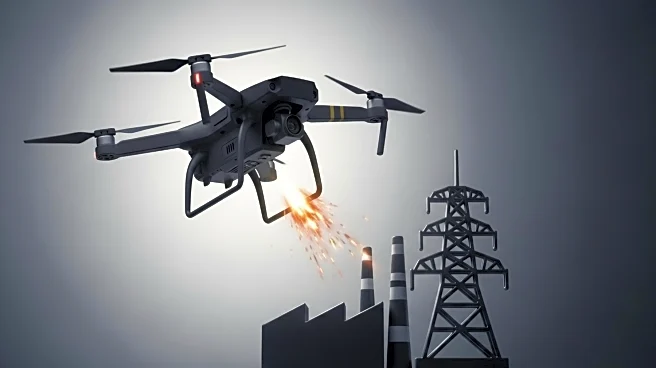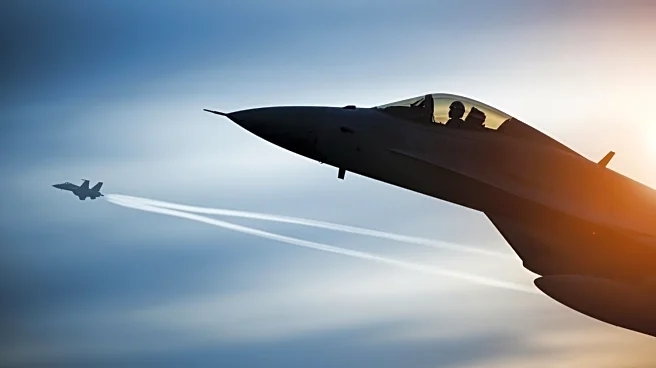What's Happening?
Recent drone incursions over several Danish airports, including Aalborg Airport, have been described as a 'hybrid attack' by Danish Defense Minister Troels Lund Poulsen. The incidents, which occurred overnight from Wednesday into Thursday, led to flight suspensions at Aalborg Airport, a facility that also serves as a military base. The drones were spotted at Aalborg and three smaller airports, raising concerns about the security of critical infrastructure. Danish authorities believe the drones were operated by a 'professional actor,' though the identity remains unknown. This follows a similar incident near Copenhagen Airport, which was also attributed to a capable actor. Danish Prime Minister Mette Frederiksen has called the Copenhagen incident 'the most serious attack on Danish critical infrastructure to date.' These events are part of a broader pattern of drone activity in the region, including similar incidents in Poland, Romania, and Estonia, amid ongoing tensions related to Russia's invasion of Ukraine.
Why It's Important?
The drone incursions in Denmark highlight vulnerabilities in national security and critical infrastructure protection. The incidents underscore the potential for drones to be used in hybrid warfare, combining traditional and unconventional tactics to disrupt and intimidate. This raises significant concerns for Denmark and its NATO allies, as the incursions could signal testing of defenses or probing for weaknesses. The events may prompt increased investment in drone detection and countermeasures, impacting defense budgets and policy priorities. Additionally, the incidents could influence NATO's strategic posture in the region, especially given the ongoing tensions with Russia. The broader implications for European security are significant, as similar incursions have occurred in neighboring countries, suggesting a coordinated effort to destabilize or intimidate.
What's Next?
In response to the drone incursions, Denmark plans to enhance its capacity to detect and neutralize drones. Justice Minister Peter Hummelgaard has announced measures to reinforce these capabilities. While there is no immediate military threat, the situation may lead to consultations among NATO members under Article 4, which calls for discussions in the face of security threats. The Danish government and its allies will likely continue to monitor the situation closely, assessing the need for further security measures. The incidents may also prompt diplomatic discussions within NATO to address the broader regional security challenges posed by such hybrid attacks.
Beyond the Headlines
The drone incursions in Denmark may have deeper implications for international law and norms regarding the use of drones in civilian airspace. As drones become more prevalent, countries may need to establish clearer regulations and protocols to prevent misuse and ensure safety. The incidents also raise ethical questions about the use of technology in warfare and the balance between security and privacy. Long-term, these events could drive innovation in drone technology, both in terms of offensive capabilities and defensive countermeasures, influencing the future landscape of military and civilian drone use.








